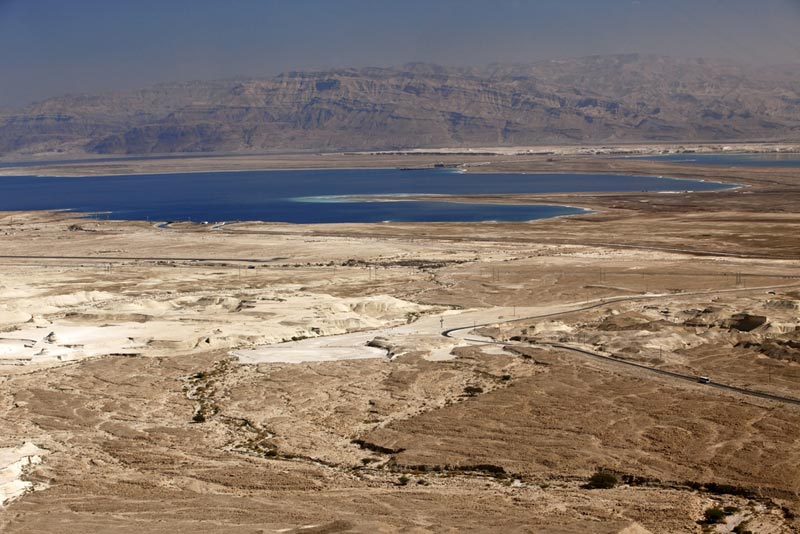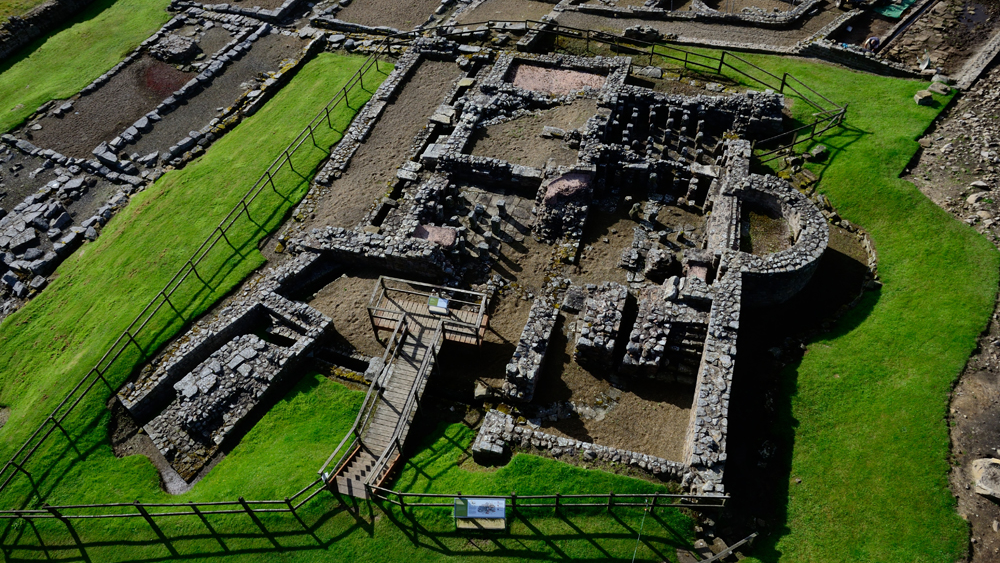
SAN FRANCISCO — The Dead Sea, the saltiest sea in the world, almost completely dried up roughly 100,000 years ago, which may be ominous news for the future of the water in the region, new research suggests.
The findings, presented here Wednesday (Dec. 5) at the annual meeting of the American Geophysical Union, are the result of analyzing sediments drilled from the Dead Sea that captured about 200,000 years of the salty body's history.
The fact that the Dead Sea has dried up before may have implications for the future of the Middle East. Several water-hungry countries in the region already use all of the runoff that flows into the sea, and if climate change further dries up the freshwater supply, it could worsen an already tense situation, said Steven Goldstein, a geologist at the Lamont Doherty Earth Observatory at Columbia University and a study co-author.
"Water is a source of conflict in this area," Goldstein told OurAmazingPlanet.
Freshwater from the Sea of Galilee, on the border of Syria, Lebanon, and Israel, feeds into the Dead Sea via several lakes in the region. As that freshwater travels south through several rivers, Lebanon, Syria, Jordan, Israel and Palestine all pull water to maintain their populations. Already, the salty body's water level is dropping about 5 feet (1.5 meters) a year, and that fall is accelerating, said Ari Torfstein, a study co-author also from Lamont Doherty.
In 2011, the team drilled a 1,476-foot-long (450 meters) core, which captured roughly 250,000 years of the sea's history. Within the core, they found 45 meters (about 150 feet) of salt topped by a layer of pebbles, a record of an ancient, long-forgotten beach.
The team concluded that at that point in history, the Dead Sea nearly vanished: The lake evaporated, leaving salt deposits in the process as water levels fell about 2,300 feet (700 m) until only a beach remained. The major desiccation happened during the planet's last warm period, around 100,000 years ago.
Get the world’s most fascinating discoveries delivered straight to your inbox.
The findings are bad news for the region. Climate change models predict that the Middle East will get warmer and drier, similar to the conditions during the last interglacial period when the Dead Sea dried up. That could mean water woes even without the populations that are siphoning off water.
"Less water will be available if those predictions are right and what we've shown is that actually happened when there were no people using all the water," Goldstein said.
Because the Dead Sea gets its water from runoff further north, it is a barometer of water availability in the region, Torfstein told OurAmazingPlanet.
"If the Dead Sea is drying down from both human usage and climate change, that means the Sea of Galilee would be in danger," Torfstein said. "And once this big reservoir of freshwater to the region is shut down, that has a huge implication."
This story was provided by OurAmazingPlanet, a sister site to LiveScience. Follow OurAmazingPlanet on Twitter @OurAmazingPlanet. We're also on Facebook & Google+.

Tia is the editor-in-chief (premium) and was formerly managing editor and senior writer for Live Science. Her work has appeared in Scientific American, Wired.com, Science News and other outlets. She holds a master's degree in bioengineering from the University of Washington, a graduate certificate in science writing from UC Santa Cruz and a bachelor's degree in mechanical engineering from the University of Texas at Austin. Tia was part of a team at the Milwaukee Journal Sentinel that published the Empty Cradles series on preterm births, which won multiple awards, including the 2012 Casey Medal for Meritorious Journalism.



